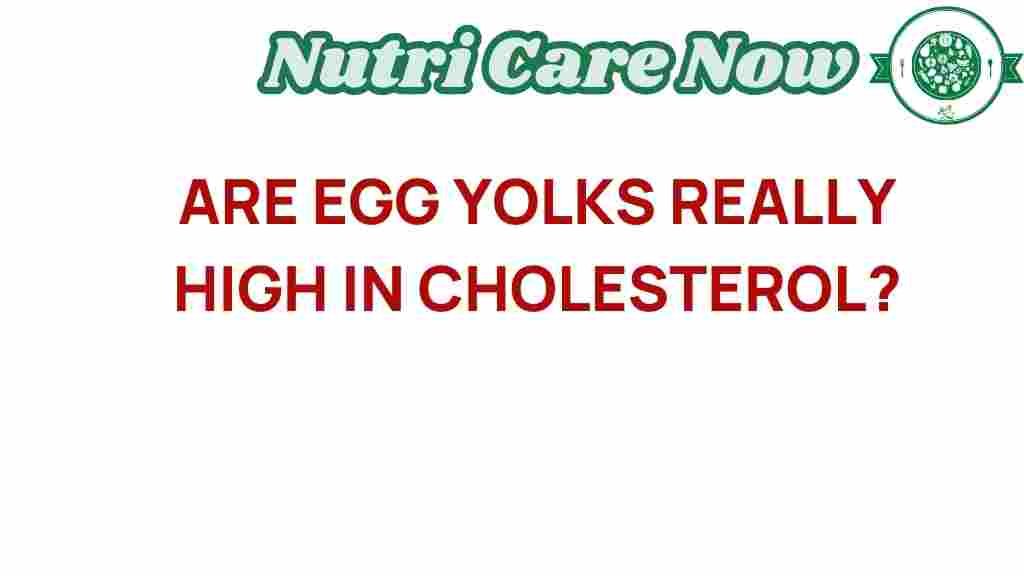Are Egg Yolks Really High in Cholesterol?
Eggs are a staple in many diets around the world, celebrated for their versatility and nutritional value. However, egg yolks have long been at the center of a heated debate regarding their cholesterol content. Many people wonder: are egg yolks really high in cholesterol? This article aims to uncover the surprising truth about egg yolks, cholesterol, and their effects on health, nutrition, and diet.
The Nutritional Profile of Egg Yolks
Before diving into the cholesterol debate, let’s explore the nutritional benefits of egg yolks. Each egg yolk contains essential nutrients that contribute to overall health, including:
- Vitamins: Egg yolks are rich in vitamins A, D, E, and K.
- Minerals: They provide important minerals like phosphorus, selenium, and calcium.
- Healthy Fats: Egg yolks contain dietary fat that is vital for nutrient absorption.
- Protein: Although most protein is found in the egg white, yolks still contribute to your daily protein intake.
With this nutritional profile, egg yolks can be a valuable addition to a balanced diet.
Understanding Cholesterol in Egg Yolks
Cholesterol is a waxy substance found in your blood, and it’s crucial for building healthy cells. However, too much cholesterol can lead to health issues, especially concerning heart health. Egg yolks are indeed high in cholesterol, with one large egg yolk containing approximately 186 milligrams of cholesterol.
Despite this, it’s essential to understand how dietary cholesterol impacts blood cholesterol levels. Research shows that for many people, dietary cholesterol has less impact on blood cholesterol than previously thought.
Debunking Misconceptions About Egg Yolks and Cholesterol
For decades, egg yolks were demonized due to their cholesterol content. However, recent studies have challenged this misconception. Here are some key points to consider:
- Individual Response: The body’s response to dietary cholesterol varies among individuals. Some people experience minimal changes in blood cholesterol levels when consuming eggs.
- HDL vs. LDL Cholesterol: Eggs can increase HDL (good cholesterol) levels, which is beneficial for heart health. They may also cause a shift in LDL (bad cholesterol) particles to a larger, less harmful size.
- Overall Diet Matters: The impact of egg yolks on health is influenced by an individual’s overall diet and lifestyle, including intake of saturated fats and processed foods.
In light of these points, the blanket statement that egg yolks are bad for cholesterol is overly simplistic and misleading.
How Egg Yolks Fit into a Healthy Diet
Including egg yolks in your diet can offer numerous health benefits when consumed in moderation. Here’s how to incorporate them effectively:
- Balance Your Meals: Pair eggs with whole grains, vegetables, and healthy fats for a balanced meal.
- Watch Portions: While eggs can be part of a healthy diet, moderation is key. Aim for 3-4 eggs per week, depending on your overall health and dietary needs.
- Consider Cooking Methods: How you cook eggs can affect their healthfulness. Opt for methods like poaching, boiling, or scrambling in healthy fats rather than frying.
Cholesterol and Heart Health: What You Need to Know
Heart health is a major concern for many, and understanding the relationship between cholesterol and heart disease is crucial. Here are some important considerations:
- Types of Cholesterol: Focus on lowering LDL cholesterol and increasing HDL cholesterol for optimal heart health.
- Dietary Patterns: Emphasize a diet rich in fruits, vegetables, whole grains, lean proteins, and healthy fats.
- Regular Exercise: Physical activity can help improve cholesterol levels and support heart health.
Incorporating egg yolks into a heart-healthy diet can be beneficial, especially when balanced with other nutritious foods.
Step-by-Step: How to Include Egg Yolks in Your Diet
Here’s a simple guide on how to incorporate egg yolks into your diet without compromising your health:
- Start Your Day Right: Use eggs in breakfast dishes like omelets or scrambled eggs with vegetables.
- Snack Wisely: Prepare hard-boiled eggs as a quick and nutritious snack.
- Healthy Salad Toppings: Add a poached egg on top of salads for added flavor and nutrition.
- Experiment with Recipes: Use egg yolks in sauces like hollandaise or in baking for moisture and richness.
By following these steps, you can enjoy the benefits of egg yolks while maintaining a balanced diet.
Troubleshooting Common Concerns About Egg Yolks
Even with the knowledge of the health benefits of egg yolks, some individuals may still have concerns. Here are common issues and how to address them:
- Concern About Cholesterol Levels: If you have high cholesterol or heart disease, consult with your healthcare provider for personalized advice.
- Allergies: Some individuals may have an allergy to eggs. If you suspect an allergy, seek medical advice.
- Dietary Restrictions: For those on specific diets (like veganism), consider alternative sources of nutrients found in egg yolks.
Conclusion: Embracing Egg Yolks in Your Diet
In conclusion, egg yolks are not the cholesterol villains they were once made out to be. Understanding the relationship between egg yolks, cholesterol, and health can empower you to make informed dietary choices. When included as part of a balanced diet, egg yolks can provide essential nutrients that support overall health.
Embrace the versatility of eggs while being mindful of your overall dietary patterns. For more information on heart health and nutrition, check out this comprehensive guide on dietary fats. Remember, moderation and balance are key to a healthy lifestyle.
So, the next time you crack open an egg, feel confident in enjoying the yolk and all its nutritional benefits!
This article is in the category Health and created by NutriCareNow Team
